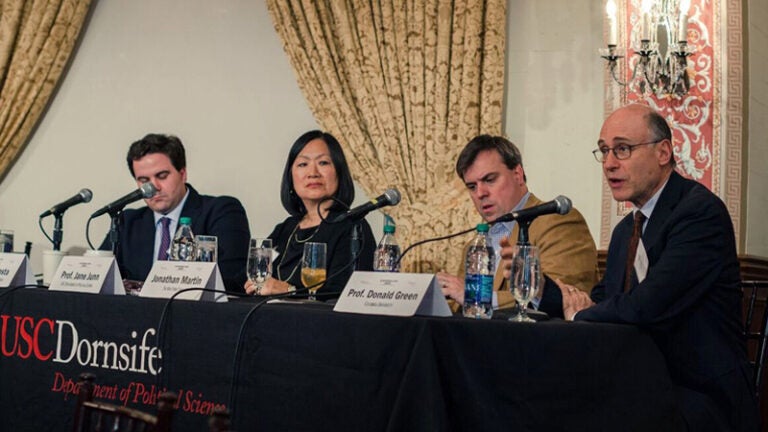
Top political experts offer insight into the 2016 election
Robert Shrum turned to the Grateful Dead to sum up the recent race to the White House as he kicked off the daylong 2016 Presidential Election Conference at USC’s University Park campus on Nov. 29.
“As I told my students yesterday, what a long, strange trip it’s been,” said Shrum, the Carmen H. and Louis Warschaw Chair in Practical Politics and professor of the practice of political science at USC Dornsife.
Organized by USC Dornsife’s Department of Political Science and Jesse M. Unruh Institute of Politics, the event brought together top experts to reflect on the 2016 presidential campaign.
Professor and political science department chair Dennis Chong explained that in political science experts draw a line between prediction and explanation.
“In particular, it’s possible to explain an event and understand it even if we weren’t able to predict it in advance,” he said. “Few among us anticipated or predicted the outcome of the presidential race, but now we’re going to try to do our best to explain what happened.”
An exceptional group of scholars, journalists and political strategists from both sides of the aisle shared their insights and experience from advising candidates in public office, reporting on politics in the national media and analyzing elections as academic scholars. Panelists included strategists from the 2016 campaigns of Hillary Clinton, Donald Trump, Jeb Bush and Bernie Sanders. Panels were moderated by faculty from the political science department including Shrum, Chong, Ann Crigler, professor of political science, and Christian Grose, associate professor of political science.
Here are some of the insights that panelists shared. You can watch the event in its entirety here.
Donald Green, professor of political science at Columbia University, on the impact that Donald Trump’s campaign and communications strategy might have on future elections.
“I was constantly being asked by journalists, ‘Will we see in subsequent elections a kind of ‘Trumpification’ of campaign strategy whereby tweeting and gaining the edge in earned media through ever more outrageous and individually crafted, often extemporaneous, behavior — will that become the norm?’ It is extraordinarily hard for multiple candidates to engage in that kind of unscripted behavior, but politics is a kind of natural selection process. The next generation of people who want to follow in that mold may be more unscripted, they may be more extemporaneous, and in some sense they may be more suited to reality T.V., whose main mode of operation is ‘you never know what’s coming next.’”
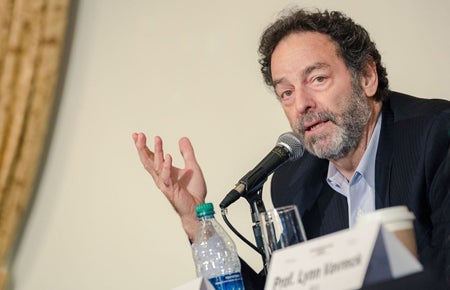
Joel Benenson, chief campaign strategist for Hillary Clinton’s 2016 presidential campaign, offers his take on how the Clinton campaign went from being the projected winner to losing to Donald Trump. He said that a number of factors may have contributed, but one stood out as having a visible impact.
“Where our concern came in late was 11 days out, frankly, when the FBI director [James Comey] announced a ‘reopening of an investigation’ based on no information.”
Up until that point, the campaign was battling to win voters who were considering third-party candidates, but the prospects had looked good, he said. “After the third debate, we saw some of our defectors coming home and our lead solidifying. Post-Comey that stopped. It stopped 11 days out. [Trump’s] defectors came home. It gave him an argument that was consistent with the argument he was making that she was corrupt, whether the charges that they were leveling were true or not. … And you might say, ‘Why when he, eight days later, said there was nothing to it — why didn’t that help?’ It didn’t help because it put it right back into the conversation again. Even though it was completely exculpatory … we just saw that sap where we were.”
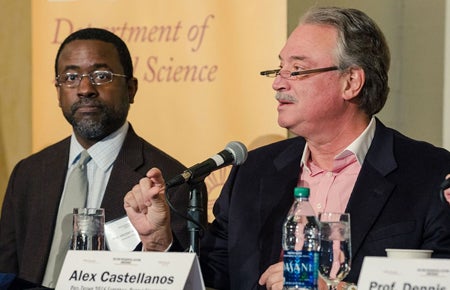
Alex Castellanos, Republican political consultant and adviser to Rebuilding America Now Super PAC supporting Donald Trump, on his hope for president-elect Trump.
“My hope is that Donald Trump is the turnaround CEO. That he is the guy who comes up to clean up the books, fire some people, stop our competitors from kicking sand in our face and change course. I think he has a very good chance of being successful because so much of what Washington is doing now is hurtful — though with the best of intentions — [and] has closed up our economy, closed up our schools, that if he just stops Washington from [hurting] us on so many of these things it will open up the economy again. So I hope he has the chance, only if he’s able to stop some of the stuff that’s going on that people are so dissatisfied with that that would help.”
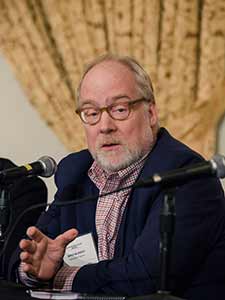
Mike Murphy, Republican political consultant and strategist for Right to Rise Super PAC supporting Jeb Bush, offers some suggestions for those who were surprised by the wide-ranging support for Trump.
“I would encourage you all to go through a personal growth exercise and think about how many people in your life that you really know you think voted for Trump. If the number you can count on one hand — go meet more people. Then you’re understanding more. That will help you fight it if you oppose it or diagnose it if that’s your job, but it will widen your circle to understand our country better.”
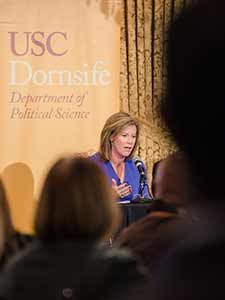
Stephanie Cutter, Democratic strategist and deputy campaign manager for Obama 2012, on what it means for Republicans that more than half of voters did not choose the president elect.
“Trump won the election, but more than half of this country didn’t vote for him. So it’s important for Republicans to understand that there is no mandate and pushing things through Washington with single-party rule or ignoring what a Democratic voter, a Bernie voter, a Jill Stein voter or a Gary Johnson voter might be thinking is really dangerous for them.”
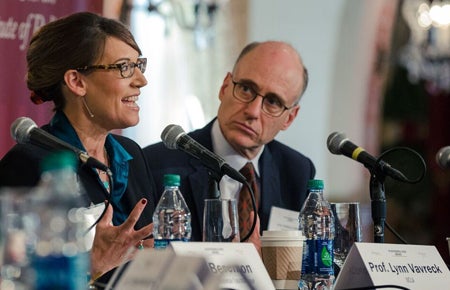
Lynn Vavreck, professor of political science and communications at University of California, Los Angeles, on what she learned from the election writing for The New York Times and receiving criticism from readers favoring both candidates.
“I said to myself, ‘Well, I could stop because I don’t want to feel bad. Or, I could take a lesson from the Trump book, which is just, ‘Get it done. Make it happen.’ … So I borrowed strength from that. Then from Hillary Clinton, whose books and biography I also read in preparation for interviewing her at UCLA, I really appreciated. She said something to me that day: ‘You’ve got to grow a skin like a rhinoceros and you’ve got to go out there, figure out the thing that gives you confidence and then steep yourself in that thing. Stand up and clear your throat and say what you have to say.’
“I know we have students in the room, so that’s my advice to you: Figure out what makes you confident, get the job done and clear your throat and say what you have to say.”